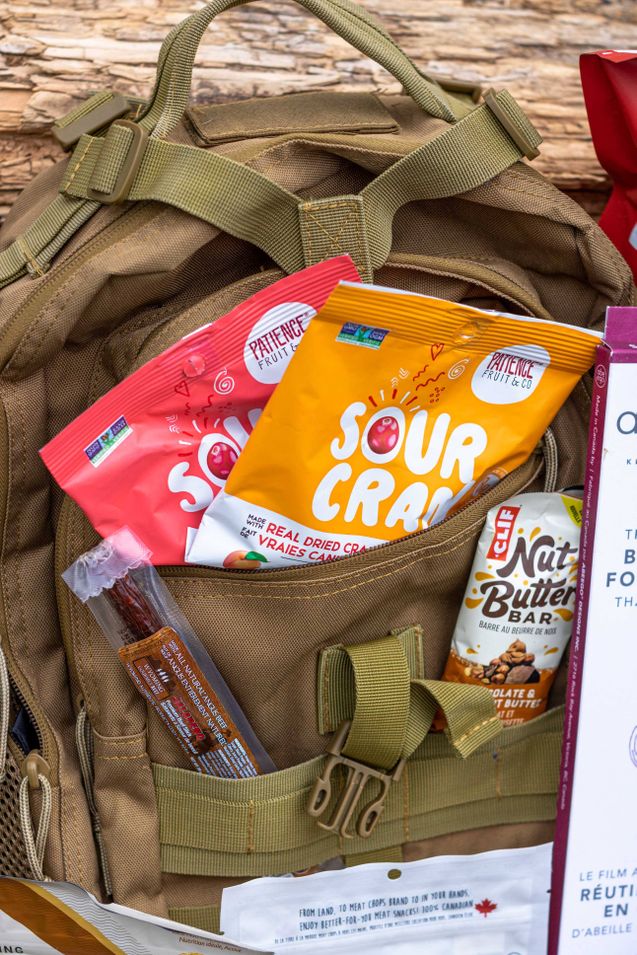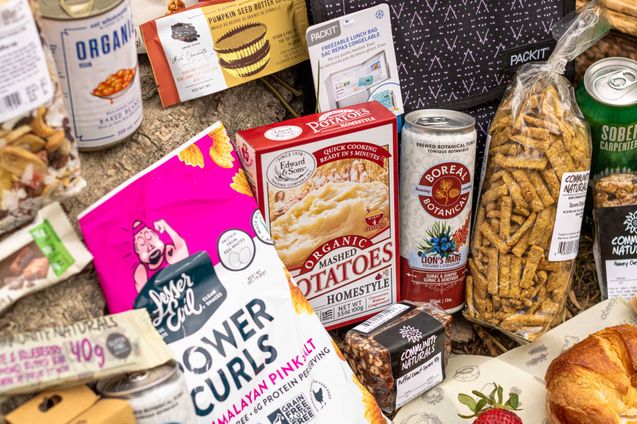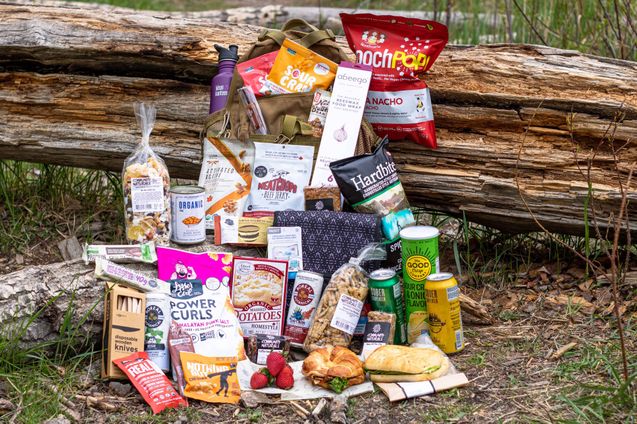For easy outdoor eating – have a plan. Your food and water needs are generally higher than usual on activity-based excursions. Pay extra special attention to packing plenty of fluids for hot weather adventures. Some other key considerations before your hiking or camping trip include:
- Length of the trip
- What foods and beverages you’ll carry
- How you’ll eat and drink
- If bringing a cooler is an option
- What food-related tools you’ll need
Pack easy-to-carry foods for a hike – or a day trip. You can actually pack perishable foods, such as sandwiches. Just be sure you have a cold source, like an ice pack, to keep these foods properly chilled. The more you stash in a backpack, the harder it is to hike, so opt mainly for non-perishable foods that are relatively lightweight and nutrient dense, such as:
- Trail mix
- Nuts, seeds, nut-based bars or nut butter packs
- Dried or freeze-dried fruits and veggies
- Energy bars, chews or gels
- Granola or granola bars
- Ready-made tuna salad pouches
- Whole-grain tortillas
- Natural or organic poultry, salmon or meat jerky
- Bottled water or sports drink… it’s essential to stay hydrated! Pre-hydrate by drinking at least 4 cups of water before your hike so you’ll have less to carry. Then a good rule-of-thumb is to plan for about 2 cups of fluid for every hour of hiking
Pack easy-to-prep foods for camping – or a multi-day trip. It’s a little more challenging to pack food for days at a time. The first day you’ll be able to eat perishable foods. But after that, map out your meals so you’ll have what you enjoy and need. If you have a cooler, you’ll have numerous options. Otherwise, include any of these shelf-stable, easily-packed basics to sustain you:
- Easy-to-carry foods mentioned above
- Ready-to-eat cereal
- Fruit or vegetable puree in squeezable pouches (yes, like baby food!)
- Chunk white chicken pouches
- Individual packets of mayo, mustard, taco sauce and/or soy sauce
- Whole-grain pasta, couscous, rice mix, pancake mix, hot cereal, dried soups and freeze-dried foods (if you’ll have the ability to boil water)
- Marshmallows – for a campfire dessert, of course
- Bottled water, plus powdered beverage mixes



To store, serve or dispose of food properly and safely, bring these essentials:
- Disposable wipes/moist towelettes or biodegradable soap
- Bowls, plates and extra plates
- Kettle or cooking pot
- Eating and cooking utensils
- Ice packs
- Compostable trash bags
- Portable water filters or water purification tablets
- Thermometers for cooler and cooked meat, if applicable
Always follow good food safety practices – from packing to plating. Remember that perishable food cannot be kept out in hot weather (90°F or higher) for more than 1 hour; in mild weather for more than 2 hours. And always practice these 4 food safety tips:
- Wash hands often. This includes before and after eating. Moist towelettes work fine.
- Keep raw meats and ready-to-eat foods separate. Use extra plates that you’ve packed – one for raw and one for prepared foods.
- Cook to proper temperatures. Use a food thermometer to be sure cooked food has reached a safe internal temperature.
- Refrigerate promptly below 40°F. Of course, if you don’t have a fridge, pack perishable food, including meat or poultry, with plenty of ice or icepacks in a well-insulated cooler to keep the temperature below 40°F. Store leftovers in the cooler only if it still has ice. And keep the cooler in as cool a place as possible.


